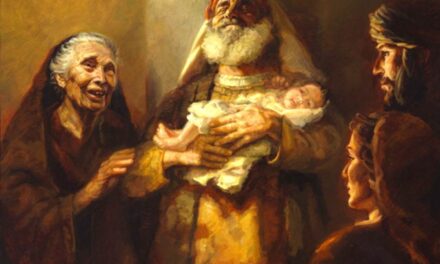When Christian women today search for female biblical figures from which to learn, the story of the slave Hagar is often overlooked. We may think we don’t have anything in common with a woman like her. Yet, the plight of Sarah’s servant teaches us very powerful lessons about God and our relationship with him. Surprisingly, we may have more in common with her than we know.
Who was Hagar? One thing we know from scripture is that she was Egyptian and a slave, a handmaiden to Abraham’s wife Sarah. (Genesis 16:1-2) We also know that she was forced to become a wife to her master in order to bear a child for Abraham and Sara. When she became pregnant though, things took a bad turn.
Issues arose between Sarah and Hagar due to the pregnancy. Immediately, Hagar came to despise her mistress. When Sarah noticed her servant’s contempt for her, she begins to abuse her. It was at this point that Hagar runs away. It must have been difficult to leave everything she knew to wander into the desert and the unknown.
One could only wonder what Hagar’s thoughts were at this point. According to how the account unfolds we can glean a few things. What we do know is that we don’t find that Abraham and Sarah ever addressed Hagar by her name. From all appearances to them she was a piece of property to be used any way they saw fit. She was a slave with no rights. Surely, she felt invisible, thinking that no one saw her plight, would take time to hear her desires, care for her feelings, or even about her future. All of this changed when she had a divine encounter with God.
In verse 7 we learn that the Angel of the Lord found Hagar and addressed her by name.
The angel of the Lord found Hagar near a spring in the desert; it was the spring that is beside the road to Shur. And he said, “Hagar, slave of Sarai, where have you come from, and where are you going?”
Wow! What would that mean to Hagar to be addressed by her given name? I imagine that she was both surprised as well as touched. (I love it when the Lord talks to me and calls me by name). This is so much like God to personally call each of us by our names!
He also asked where she had come from and where she was going. Since God is all-knowing, he already knew where she was at but it’s so much the character of God to want to hear Hagar’s personal response. As the scenario continued to unfold, she would begin to understand that God knew much more about her than she could ever realize
The interesting thing to note here is that God reached out to her out personally. He knew exactly where she was not just by physical location but in her despair. I’m sure that Hagar was feeling very dismal about her current situation but also her future. However, God knew exactly what she needed to hear and would speak to her concerning both. He took the time to dispatch an Angel to give her immediate direction as well as a prophetic word to give her hope for the future.
God reaching out personally to Hagar reminds me so much of the Woman at the Well! (John 4) She thought no one knew about her life or troubles but then she encounters Jesus, the God that knew everything about her life. She addresses this in v10. He tells her about herself in v16-18. In this encounter, she would receive the revelation that Jesus was the Christ, the Son of the Living God. Later, Jesus would prove his eternal love for her as well as the rest of humanity by going to the Cross.
Back to Hagar’s story. The Angel of the Lord asks her where she came from and where she was going. She answered, “I’m running away from my mistress Sarah”. Even though Hagar asserted her own will by running away, God reveals his divine will to her through the angel.
“Go back to your mistress and submit to her, and I will increase your descendants that they will be too numerous to count.”
God’s promise to Hagar was conditional. If she would go back to Sarah and submit to her, he would give her so many descendants that they could not be counted! Not only did God speak of her future, he saw her present situation. He heard her affliction. He confirms that she is going to have a baby and tells her she will have a son. He even tells Hagar to name her son Ishmael (which means God hears). Then he tells her what her son will be like.
“Behold, you are with child,
And you shall bear a son.
You shall call his name Ishmael,
Because the Lord has heard your affliction.
He shall be a wild man;
His hand shall be against every man,
And every man’s hand against him.
And he shall dwell in the presence of all his brethren.”
God’s word to her wasn’t altogether encouraging. Or was it? I’m sure it wasn’t easy for Hagar to make the decision to go back to Sarah and submit to her. Did she have any fears that she’d be opening herself up to more hardship and misery by doing so? Possibly. However, this God had heard her in her affliction. He heard her. As someone that was used to not having a voice or anyone caring what she wanted, I’m sure that this was reassuring and enabled her to make the final decision to obey God. Due to all of God’s words to her, at some point in her conversation with the Angel of the Lord, Hagar had a powerful revelation concerning God. She decided to give him a name with which she could identify.
She gave this name to the Lord who spoke to her: “You are the God who sees me,” for she said, “I have now seen the One who sees me.” (Genesis 16:13)
What did Hagar learn from this encounter with the Angel of the Lord? What caused her to go back and submit to Sarah? She received a revelation that the Lord sees her. She came to understand that the Lord cared about what was happening in her life, that he cared about her future. If she would obey him he would not only take care of her but her descendants as well. Just like the Woman at the Well, when you have an encounter with Jesus you can never be the same again.
What courage it must have taken for her to go back there!
But she had the promise of God for her and her son. She learned that she was not peripheral to God’s plan for Abraham and Sarah after all — God had a plan for Hagar too.
Your life is not peripheral either. God has seen you since before time began. He cares about everything in your life right now. (I Peter 5:7) He knows the plans he has for you. Good plans to give you an expected end. (Jeremiah 29:11)
What is that expected end? Ask God to speak to you about your future and he will. Do you see yourself as God sees you? Listen to what he is telling you – both in his word and in your heart. You are a daughter of the Living God. You are chosen and not forsaken. You are who God says you are! He will help you to be victorious if you trust him to direct your life.
Hagar said, “you are the God who sees ME.” How encouraging this is! In this story, we can be encouraged that God sees us personally! Understand that God sees YOU!!!! Many women today are in a position similar to Hagar’s. They may not be actual slaves, but yet feel that they are not being heard or that others do not see what they are going through or their worth or value. They are in positions of weakness, with no one to defend them. No one except God. As children of God, we can always take solace in the fact that he always sees and hears us.
Just like Hagar, he may ask you to do some things that will be difficult. but you can trust that he will strengthen and empower you to accomplish all that he asks you to do. He will never leave or forsake you, he will always deliver you and care for you. He is the God who always hears our thoughts and prayers. He is the God who sees our purpose, hopes and dreams. He is the God that reveals our future to us and holds us in the palm of his hand.
The same God who defended Hagar and later heard the cries of her son in the desert hears the cries of helpless women and their children today. When we are at our weakest, God is at his best, ready to step in and say to us as he said to Hagar, “Do not be afraid” (Genesis 21:17). We are all part of the whole plan of God. We are His family. But we too are individuals and he sees us that way. We are one body but made up of different parts that are unique to our Father. You are not just another face in a crowd but an individual and uniquely in a personal relationship with the God Who Sees!
.





Lorem ipsum dolor sit amet, consectetuer adipiscing elit, sed diam nonummy nibh classica ed euismod tincidunt ut laoreet dolore magna vertolori. Claritas est etiam processus dynamicus, qui sequitur.
Lorem ipsum dolor sit amet, consectetuer adipiscing elit, sed diam nonummy nibh classica ed euismod tincidunt ut laoreet dolore magna vertolori. Claritas est etiam.
Lorem ipsum dolor sit amet, consectetuer adipiscing elit, sed diam nonummy nibh classica ed euismod tincidunt ut laoreet dolore magna vertolori.
This is a short comment.
Lorem ipsum dolor sit amet, consectetuer adipiscing elit, sed diam nonummy nibh classica ed euismod tincidunt ut laoreet dolore magna vertolori. Claritas est etiam processus dynamicus.
Investigationes demonstraverunt lectores legere me lius quod ii legunt saepius. Claritas est etiam processus dynamicus, qui sequitur mutationem consuetudium lectorum. Mirum est notare quam littera gothica, quam nunc putamus parum claram. Duis autem vel eum iriure dolor in hendrerit in vulputate velit esse molestie consequat.